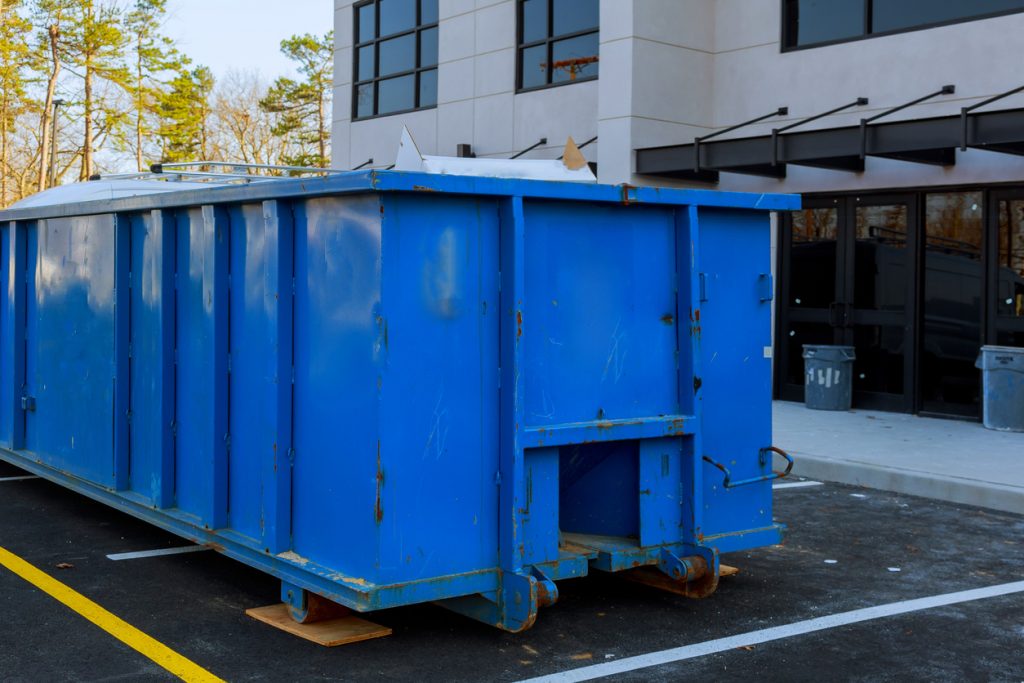Overage, Overfill, & Excess Volume Fees: How Hidden Volume Fees Drain Your Budget

In today’s business landscape, controlling operational expenses is more critical than ever. One area where costs often sneak under the radar is in waste and recycling invoices. Specifically, overage, overfill, and excess volume fees can quietly drain thousands from your budget each year.
While waste haulers present these charges as routine adjustments, the reality is that they are often preventable, unnecessary, or inflated. Understanding how these fees work – and how to eliminate them – can put money back into your business’s bottom line.
What Are Overage, Overfill, and Excess Volume Fees?
Waste haulers use these terms interchangeably, but all of them relate to a single issue: when a container is deemed “too full.”
- Overage Fees are charged when waste exceeds the contracted volume for a container.
- Overfill Fees appear when the lid won’t close properly, or material is stacked above the rim.
- Excess Volume Fees may be assessed when haulers need to make additional trips or handle “unexpected” loads (which can also result in extra pick up fees).
The problem? These definitions vary by vendor, and enforcement can be inconsistent, creating confusion and frustration for businesses.
Even just slight excess in your dumpster can trigger overage fees.
Why These Fees Exist and How Vendors Profit
Haulers justify these charges as necessary for safety, efficiency, and compliance. While that may sound reasonable, the structure of these fees often creates profit centers for vendors. Since the actual disposal cost increase from a small overage is minimal, the markup on these charges can be disproportionately high.
In many cases, businesses end up paying hundreds of dollars in penalties for waste that could have fit into the existing service schedule with minor adjustments.
How Overages Add Up to Major Budget Drain
One overage charge might not seem like much, but the cumulative impact is significant.
- A single $100 overage fee per month = $1,200 per year.
- For businesses with 10–20 locations, that can add up to $12,000–$24,000 annually in hidden charges.
Because these fees are buried in complex invoices, they often go unnoticed until budget reviews reveal year-over-year cost creep.
Common Causes of Overage & Overfill Charges
Understanding what triggers these charges is the first step to avoiding them. Common causes include:
- Poor container sizing: The service level doesn’t match actual waste output.
- Irregular pickup schedules: Seasonal surges or production cycles create overages.
- Improper loading practices: Waste stacked incorrectly can cause lids not to close.
- Contamination of recycling bins: Extra material or non-recyclables force overfill conditions.
Without oversight, haulers can take advantage of these situations, charging fees that don’t reflect actual costs.
Red Flags to Watch for on Invoices
Businesses should audit invoices for the following:
- Line items labeled “overage,” “extra haul,” or “overfill.”
- Repeated fees across multiple months with no explanation.
- Charges that don’t align with service agreements.
- Lack of detail about volume thresholds.
Often, these charges appear without prior notification or photographs, making it difficult to verify their legitimacy.
Preventing Hidden Volume Fees: What Businesses Can Do
There are proactive steps companies can take to reduce or eliminate these charges:
- Right-size your containers and pickup frequency to match actual waste output.
- Train staff on proper container loading to avoid lid violations.
- Monitor seasonal trends to adjust service temporarily during peak times.
- Request photographic proof before accepting overage fees as valid.
- Conduct regular invoice audits to spot recurring patterns.
These steps require vigilance and time—something many busy facility managers don’t have.
How NWA Protects Clients from Overage & Overfill Fees
At National Waste Associates, we specialize in eliminating waste-related surprises. Here’s how we help clients:
- Invoice Audits: We catch and dispute invalid overage charges.
- Container Optimization: Our team analyzes actual waste generation to right-size services.
- Seasonal Adjustments: We proactively modify service schedules based on client operations.
- Vendor Accountability: We negotiate contracts with transparent terms and require documentation for all fees.
Clients who partner with NWA often see dramatic reductions in hidden volume fees, turning “invisible” losses into measurable savings.
Conclusion
Hidden volume fees like overages, overfills, and excess charges are a costly reality for many businesses—but they don’t have to be. By understanding how these fees work, identifying red flags, and partnering with experts like NWA, companies can take back control of their waste budgets. The savings aren’t just financial; they represent a shift toward greater transparency and accountability in vendor relationships.
Learn more about our waste & recycling services by
calling 888-692-5005 x6 or sending us an
email at sales@nationalwaste.com



 BIC License #1496
BIC License #1496